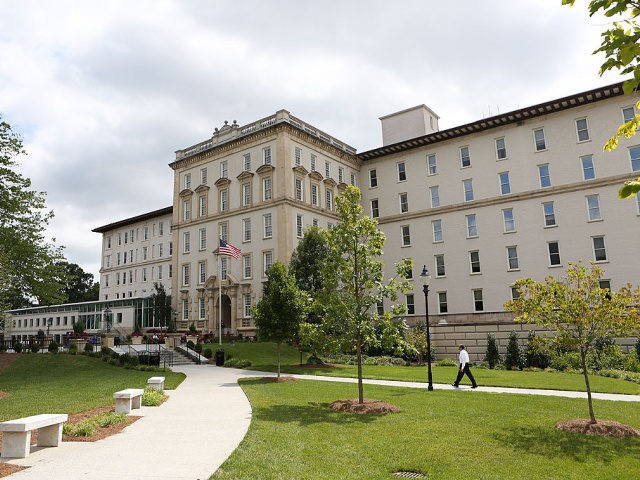Emory University in Atlanta, Georgia, announced over the weekend it has fired two Chinese-American faculty members, a married couple named Li Xiaojiang and Li Shihua, for failing to “fully disclose foreign sources of research funding and the extent of their work for research institutions and universities in China.”
Radio Free Asia reported the school launched an investigation two weeks ago while Li Xiaojiang was visiting China on leave, based on a warning from National Institutes of Health (NIH) Director Francis Collins. Investigators seized computers and documents from the lab and questioned members of Li’s research team.
Collins issued a general warning last August about secret sources of overseas funding for some researchers and the danger of “diversion of intellectual property” to foreign entities.
“Emory discovered that two of its faculty members named as key personnel on NIH grant awards to Emory University had failed to fully disclose foreign sources of research funding and the extent of their work for research institutions and universities in China,” the university stated.
Li is a leading scientist in the field of gene editing who worked at Emory for over 20 years after moving to the United States in the 1980s. He additionally held positions at several Chinese universities over the past decade, including Jinan University, where he was speaking at the time of his termination from Emory. The Lis were engaged in research on the genetic disorder known as Huntington’s disease.
He was also a member of China’s “Thousand Talents Program” (TTP), an initiative launched in 2008 to recruit foreign specialists to work for China.
TTP has come under scrutiny as a mechanism for China to steal technology from the Western world. A physicist who worked for the Los Alamos National Laboratory was charged on Tuesday with lying about his involvement with the program. A number of other scientists linked to TTP have lost their positions over the past year, prompting the Chinese Ministry of Education to advise TTP recruiters to avoid using the term “Thousand Talents” and refrain from sending emails to candidates.
Radio Free Asia quoted some academics who predicted TTP would continue without a general “purge” of its members from Western institutions, but would probably be scrutinized more carefully, especially when dealing with sensitive areas of research.
Li disputed Emory University’s charges against him, insisting he has disclosed all research activity as required and obtained written approval for his work in China. He said he is considering the possibility of legal action against Emory for his dismissal.
“I was shocked that Emory University would terminate a tenured professor in such an unusual and abrupt fashion and close our combined lab consisting of a number of graduates and postdoctoral trainees without giving me specific details for the reasons behind my termination,” Li said in a statement.
Jinan University swiftly announced that it would hire the Lis and their research team, implying in its statement that the couple was unfairly persecuted as a consequence of the U.S.-China trade war.

COMMENTS
Please let us know if you're having issues with commenting.